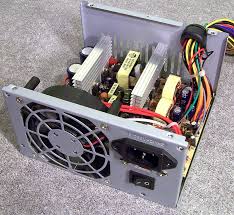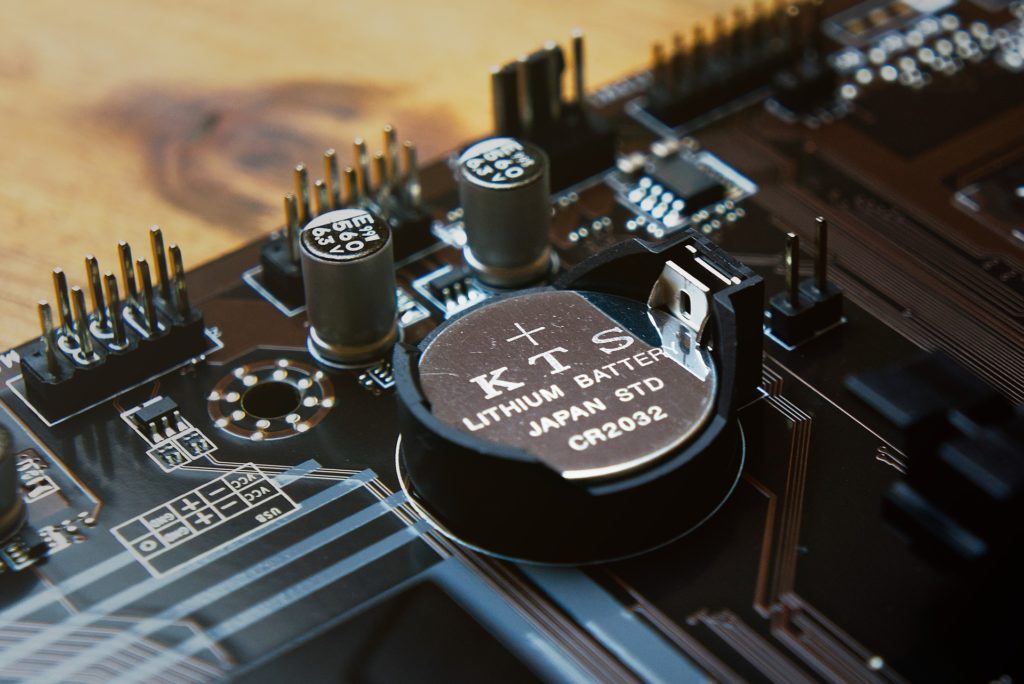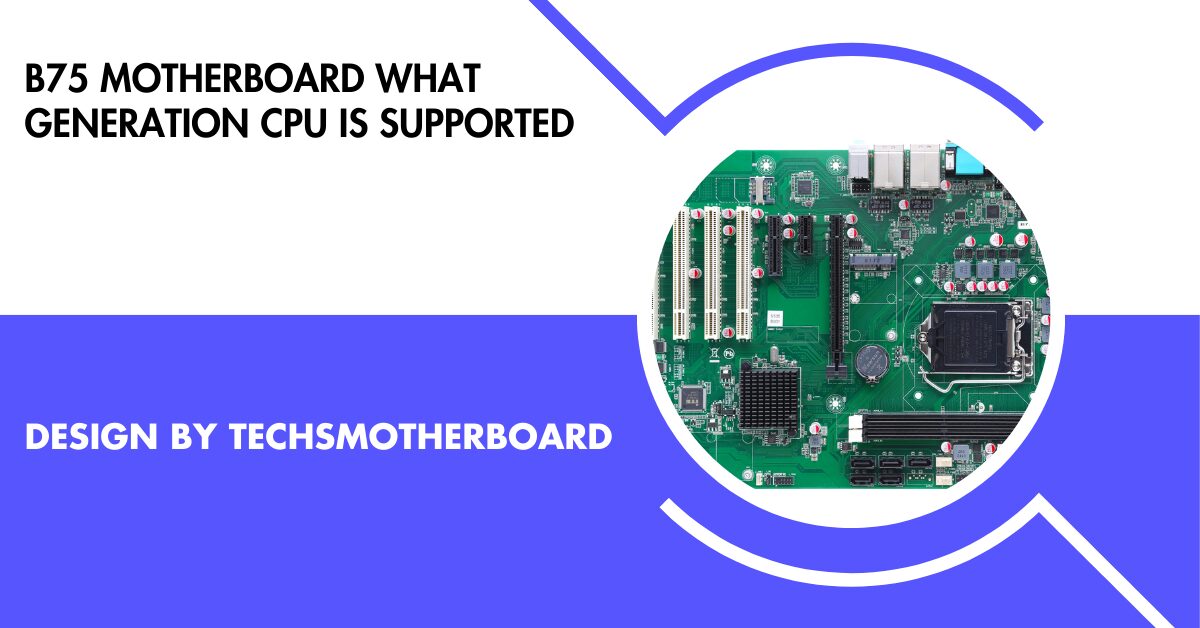Motherboard Guide
Can Power Supply Damage Motherboard – Here’s What You Need to Know!

Yes, a power supply can damage a motherboard if it fails to regulate voltage or deliver consistent power, so using a high-quality PSU and proper maintenance is essential.
In this article, we’ll explore how this happens, the signs of potential damage, and what you can do to prevent it.
How a Power Supply Can Damage a Motherboard:

The PSU’s main function is to convert AC (alternating current) from your wall outlet into the DC (direct current) that your computer’s components use. It also regulates voltage to ensure that your components receive the right amount of power. However, if the PSU fails to perform these functions correctly, it can cause severe damage to the motherboard and other components. Let’s examine the specific scenarios where a PSU might harm your motherboard.
Voltage Spikes and Surges:
- What Happens: Voltage spikes are sudden, brief increases in voltage, while surges are more sustained increases. These can occur due to external factors like lightning strikes or internal issues within the PSU.
- Impact on the Motherboard: If a power supply cannot regulate these spikes or surges, the excess voltage can flow directly to the motherboard. This can overwhelm delicate components, such as capacitors and ICs (integrated circuits), leading to immediate damage or a slow degradation over time.
Inadequate Power Delivery:
- What Happens: If a power supply is underpowered or unable to meet the demands of your system, it may not deliver consistent power to the motherboard.
- Impact on the Motherboard: Inconsistent or insufficient power can cause your system to become unstable, leading to random reboots, system crashes, or in severe cases, damage to the motherboard’s power delivery system. Over time, this stress can wear out the motherboard’s components, reducing their lifespan.
Faulty Capacitors:
- What Happens: Capacitors in a PSU help smooth out voltage and prevent fluctuations. Over time, or due to poor manufacturing quality, these capacitors can degrade or fail.
- Impact on the Motherboard: Faulty capacitors can cause voltage instability, leading to power surges or drops that the motherboard is not designed to handle. This can result in overheating, short circuits, or even catastrophic failure of the motherboard.
Short Circuits:
- What Happens: Short circuits occur when electricity takes an unintended path, often due to faulty wiring or damaged components.
- Impact on the Motherboard: A short circuit in the PSU or the cables connecting it to the motherboard can cause an immediate and severe power surge. This can fry the motherboard, along with any other connected components like the CPU, GPU, and RAM.
Inconsistent Power Output:
- What Happens: Some power supplies, especially those of lower quality, may not provide a steady output of power. Instead, they might fluctuate in the amount of power delivered.
- Impact on the Motherboard: These fluctuations can cause the motherboard to receive inconsistent power, leading to instability. Over time, this can cause data corruption, malfunction of hardware components, or even permanent damage to the motherboard.
Also Read: Atx Cases Are Compatible With Which Type Of Motherboard – A Complete Overview!
Signs That Your Power Supply May Be Damaging Your Motherboard:
Recognizing the signs of a failing or faulty PSU can help you take action before it damages your motherboard. Here are some warning signs to look out for:
Frequent System Crashes or Reboots:
- What to Watch For: If your computer frequently crashes, reboots without warning, or fails to boot up entirely, this could be a sign of an unstable power supply. These symptoms can indicate that the PSU is not delivering consistent power, which can stress and damage the motherboard over time.
Burning Smell or Visible Damage:
- What to Watch For: A burning smell, melted connectors, or scorch marks on the motherboard are signs of severe electrical issues. If you notice any of these, it’s crucial to power down your system immediately and inspect the PSU. Continuing to use a damaged PSU can lead to irreversible damage to the motherboard and other components.
Unresponsive System or No Power:
- What to Watch For: If your system doesn’t power on at all, or if it powers on but remains unresponsive (e.g., no display on the monitor, no POST beeps), the PSU might have already damaged the motherboard. In such cases, testing the PSU with another known-good motherboard or using a PSU tester can help determine if the PSU is at fault.
Unusual Noises from the PSU:
- What to Watch For: Unusual noises like buzzing, crackling, or clicking coming from the PSU are red flags. These sounds often indicate failing internal components, such as capacitors or transformers, which can lead to voltage irregularities. If you hear these noises, it’s essential to replace the PSU before it causes further damage to your motherboard.
Overheating Issues:
- What to Watch For: If your PSU or motherboard is running unusually hot, it could indicate that the PSU is overworking or failing to distribute power properly. Overheating can damage both the PSU and the motherboard, leading to system instability and potential failure.
How to Prevent Power Supply Damage to Your Motherboard:

Prevention is the best approach when it comes to protecting your motherboard from potential damage caused by a faulty power supply. Here are several steps you can take:
Choose a High-Quality Power Supply:
- Why It Matters: Investing in a high-quality PSU is essential for the long-term health of your PC. A good PSU will have better internal components, such as capacitors and transformers, which can handle power delivery more effectively. Look for PSUs from reputable manufacturers that offer solid warranties and have positive reviews from both users and professionals. Certifications like 80 PLUS, which indicate higher efficiency, are also a good indicator of quality.
Ensure Proper Wattage:
- Why It Matters: Before purchasing a PSU, calculate your system’s total power consumption using a PSU calculator. Ensure the PSU provides enough wattage to meet the demands of your system, with some headroom for future upgrades. An underpowered PSU can cause instability and potential damage, while an overpowered PSU can waste energy and money.
Use Surge Protectors or Uninterruptible Power Supplies (UPS):
- Why It Matters: Surge protectors and UPS devices protect your PC from external power surges and fluctuations. A surge protector absorbs excess voltage, preventing it from reaching your PSU, while a UPS provides backup power in case of an outage. These devices add an extra layer of protection, ensuring that your PSU and motherboard remain safe from unexpected power events.
Regular Maintenance and Inspections:
- Why It Matters: Periodically inspect your PSU and motherboard for any signs of wear, damage, or dust buildup. Dust can cause overheating, leading to component failure. Ensure all connections are secure, and that cables are intact and not frayed or damaged. Regular maintenance helps prevent issues before they become serious.
Replace Aging Power Supplies:
- Why It Matters: PSUs, like all components, have a limited lifespan. Even high-quality PSUs can degrade over time, leading to potential power delivery issues. If your PSU is several years old, or if you notice any of the warning signs mentioned earlier, consider replacing it with a new, reliable unit. This proactive approach can save you from costly motherboard replacements down the line.
Check for Manufacturer Defects and Recalls:
- Why It Matters: Before using a new PSU, check if there have been any manufacturer recalls or reported defects. Defective PSUs can have faulty components that may lead to power inconsistencies and potential motherboard damage. Register your PSU with the manufacturer to receive updates on recalls or issues related to your model.
FAQ’s
1. Can a faulty power supply damage a motherboard?
Yes, a faulty power supply can cause voltage spikes, inadequate power delivery, or short circuits, all of which can severely damage a motherboard.
2. What are the signs that a power supply is damaging my motherboard?
Signs include frequent system crashes, burning smells, unresponsive systems, unusual noises from the PSU, and overheating issues.
3. How can I prevent my power supply from damaging my motherboard?
Use a high-quality PSU, ensure it has sufficient wattage, protect your system with surge protectors or UPS, and regularly inspect and maintain your PSU.
4. What happens if the power supply is underpowered for my system?
An underpowered PSU may not deliver consistent power, leading to system instability, random reboots, and potential damage to the motherboard’s components.
5. Why is regular maintenance of the power supply important?
Regular maintenance helps identify and address issues like dust buildup, faulty cables, or aging components, preventing potential damage to the motherboard and other parts of your system.
Conclusion
The power supply unit (PSU) is vital for your PC’s stability and health, directly affecting the motherboard and other components. Opting for a cheaper PSU can lead to severe damage, so it’s crucial to choose a high-quality unit, ensure proper power delivery, and protect against surges. Investing in a reliable PSU safeguards your system’s longevity and performance.
Motherboard Guide
Building Confidence in Subsurface Evaluations Through Precision

Key Takeaways
- Precision in subsurface evaluations is vital for safety and project success.
- Advanced technologies, such as 3D Ground Penetrating Radar (GPR) and AI-driven modeling, enhance accuracy.
- Real-time data integration facilitates more informed decision-making during construction.
Confidence in subsurface evaluations is the bedrock of successful construction and infrastructure development. When project managers and engineers rely on accurate assessments beneath the surface, they make informed decisions that safeguard workers, the public, and investments. In developing this confidence, integrating reliable wireline services early in the site investigation phase helps teams acquire dependable data essential for precision.
Precision in subsurface evaluations goes beyond locating underground features; it builds trust and mitigates risks before construction. Using advanced tools and expert analysis, teams can confidently manage complex projects, reducing uncertainty, delays, and costs. Misidentifying utilities or natural features can cause hazardous incidents, costly repairs, and legal penalties. Accurate mapping prevents utility strikes, secures foundations, and keeps projects on schedule. It also detects hazards like underground voids or subsidence risks that threaten long-term asset integrity. The industry’s focus on technology advances allows real-time insights, enabling engineers to take preemptive actions, avoid disruptions, and ensure regulatory compliance.
The Importance of Precision in Subsurface Evaluations
Every phase of infrastructure and construction relies on a precise understanding of the ground beneath. Inaccurate data can trigger project setbacks, trigger budget overruns, and compromise safety. Detailed subsurface imaging enables teams to avoid accidental punctures of utility lines, address geological challenges, and comply with stringent regulations regarding environmental and site safety. The U.S. Department of Transportation has documented cases that highlight how improved utility detection methods yield significant cost savings and reduce hazardous incidents.
Advanced Technologies Enhancing Precision
Innovative technology has revolutionized the detection, visualization, and understanding of subsurface features. One of the most pivotal advancements is the introduction of 3D Ground Penetrating Radar (GPR). Modern 3D GPR systems provide continuous, high-definition data, enabling crews to survey large areas rapidly without intrusive digging. These systems, often vehicle-mounted, scan infrastructure, such as roads and bridges, at operational speed, ensuring minimal disruption while capturing both shallow and deep targets with clarity. Project examples, such as Infrasense’s work in New Jersey, show that 3D GPR enhances pavement structure analysis and efficiently detects issues like sinkholes and buried debris.
Complementing physical solutions are software advancements like AI-driven modeling and machine learning, which analyze large datasets from seismic readings, well logs, and core samples to uncover subsurface patterns missed in traditional methods. These digital tools offer a holistic view, improving risk assessments and workflows. As technology advances, real-time telemetry and imaging allow instant reaction to hazardous formations, reducing costs, improving safety, and increasing efficiency—a major shift in project management.
Real-Time Data Integration and AI-Driven Modeling
Real-time data integration is revolutionizing the way subsurface challenges are identified and addressed. By connecting sensor data, telemetry, and advanced analytics, project teams now make informed choices without waiting for lengthy lab analysis. AI and machine learning models process noisy, complex datasets and convert them into actionable insights rapidly—ensuring quicker response to on-site hazards. This capability supports drilling teams, surveyors, and designers by giving an evolving, complete picture of rock formations, soils, and potential voids beneath their feet.
Examples such as Halliburton’s initiatives in real-time subsurface characterization highlight the significant benefits of uniting physical surveys with instant digital modeling. These capabilities empower construction leaders to adjust plans on the fly—reducing risk while optimizing both cost and timeline.
Conclusion
Building confidence in subsurface evaluations hinges on precision, from meticulous data gathering through to the latest advancements in technology. By embracing 3D GPR, real-time data integration, and sophisticated AI-driven modeling, today’s project teams, utility locators, and engineers are setting new standards for safety and success in construction. The transition to these high-precision solutions builds resiliency into every aspect of project delivery—offering certainty where it matters most and forming the foundation for innovation across the industry.
Motherboard Guide
How Technology Is Reshaping Everyday Life

A Rapidly Evolving Digital Landscape
Technology is transforming the world in once unimaginable ways, altering how we live, work, learn, and communicate. The shift isn’t just about gadgets or apps—it’s about the deeper integration of digital tools into the very structure of society. From the workplace to the classroom, from hospitals to our homes, technology has woven itself into daily life, creating new opportunities and challenges along the way.
At its core, technological progress is about solving problems and increasing efficiency. Innovations that once took decades now arrive in years or months. Artificial intelligence, cloud computing, robotics, virtual reality, and the Internet of Things (IoT) have not only reshaped industries but also redefined human interaction and expectations. We no longer wait for answers, services, or updates. Everything is instant, interconnected, and increasingly automated.
These changes impact more than productivity; they affect our relationships, our privacy, and even our values. As we hand more control to algorithms and rely more on smart devices, questions arise about what it means to be human in an increasingly digital world. Still, the potential of technology to make life better—more efficient, more connected, and more accessible—is enormous, especially when it is applied thoughtfully and inclusively.
The Changing Face of Work and Collaboration
One of the most visible ways technology is reshaping the world is in how we work. The traditional office has evolved into a flexible, hybrid model where collaboration happens across cities, time zones, and even continents. Cloud-based tools, video conferencing, real-time messaging apps, and project management software have made it possible for teams to function seamlessly without being in the same room—or even the same country.
This shift has led to increased productivity in many sectors, as people can now customize their work environments to fit their preferences. At the same time, it introduced challenges, including burnout, digital fatigue, and blurred boundaries between personal and professional life. As a result, companies are rethinking not only their tech stacks but also their cultures, placing greater emphasis on mental health, work-life balance, and digital wellness.
Technology has also opened the door to more inclusive and diverse workplaces. With remote work, individuals who may have previously been excluded due to geography, physical limitations, or caregiving responsibilities can now participate in meaningful ways. Tools that enable real-time collaboration, like shared documents, video calls, and virtual whiteboards, have made communication more democratic, allowing all voices to be heard.
How We Learn and Share Information
Education has seen some of the most profound changes thanks to technology. Online learning platforms, digital textbooks, interactive simulations, and video tutorials have made knowledge more accessible than ever. Students no longer rely solely on classroom lectures or printed material—they can explore topics at their own pace, review lessons on demand, and engage in more personalized learning paths.
Moreover, technology is leveling the playing field in education. Students in rural or underserved communities can now access the same resources as those in urban centers. Language translation tools, accessibility features for individuals with disabilities, and open-source content are breaking down barriers and creating more equitable learning environments.
In classrooms and corporate training sessions alike, the use of interactive tools such as whiteboarding has enhanced engagement. Virtual whiteboards allow for collaborative note-taking, brainstorming, and concept mapping, even when participants are physically apart. This kind of interactivity helps learners retain information better and encourages more active participation. Whether students are solving math problems or professionals are mapping out business strategies, whiteboarding creates a shared visual space for real-time thinking and communication.
Technology in Our Daily Lives
Beyond work and learning, technology has revolutionized how we navigate the world daily. Smartphones have become extensions of ourselves, offering navigation, health tracking, entertainment, banking, and more, all in one device. Smart home systems let us control lights, thermostats, security, and appliances with a tap or a voice command. Wearable devices monitor our sleep, steps, and heart rate, giving us insight into our physical health like never before.
E-commerce has shifted the way we shop, making it easy to purchase everything from groceries to cars online. Personalized algorithms recommend products, track our preferences, and streamline the checkout experience. Meanwhile, ride-sharing apps, delivery platforms, and digital wallets are reshaping transportation and commerce in real time.
Social media platforms and messaging apps have transformed how we connect with others, build communities, and share our lives. While these tools offer incredible benefits for staying in touch and discovering content, they’ve also introduced concerns around screen time, digital addiction, and misinformation. Managing this balance is one of the major societal challenges of the digital era.
Healthcare and Wellness in a Connected Age
The healthcare sector has also undergone significant transformation thanks to technology. Telehealth appointments, digital health records, wearable monitoring devices, and AI-driven diagnostics have improved patient outcomes and expanded access to care. People in remote areas can consult with specialists without traveling long distances, and doctors can monitor chronic conditions more accurately using real-time data.
Artificial intelligence is increasingly being used to assist with medical imaging, drug discovery, and personalized treatment plans. These advancements have the potential to reduce medical errors, speed up diagnoses, and deliver more precise therapies. Additionally, mental health apps and virtual therapy sessions are helping to reduce stigma and provide support to people who may not otherwise seek help.
Even wellness has gone digital. From guided meditation apps to fitness trackers and diet planning tools, individuals are leveraging technology to take control of their health in holistic ways. The feedback loop created by real-time data allows users to make smarter, more informed decisions about their bodies and habits.
The Future: Integration and Responsibility
As technology continues to evolve, the future will be defined not just by innovation, but by how responsibly we apply it. Issues like data privacy, cybersecurity, AI ethics, and algorithmic bias are becoming central concerns. While the benefits of a tech-driven world are clear, so too are the risks. Policymakers, developers, and users must work together to ensure technology serves the public good and doesn’t deepen inequality or reinforce harmful systems.
Integration will also be key. Instead of siloed platforms and fragmented tools, we’ll see greater emphasis on interconnected ecosystems that seamlessly blend software, hardware, and human interaction. Smart cities, autonomous vehicles, personalized education, and AI-enhanced work environments are just a few examples of how deeply embedded technology is becoming in our future world.
Conclusion: Living in a Technological World
Technology is no longer a separate domain—it is woven into the fabric of everyday life. From the ways we work and learn to how we communicate, shop, stay healthy, and solve problems, it continues to redefine our world. Tools like whiteboarding, smart devices, digital collaboration platforms, and AI systems are helping us tackle challenges, stay connected, and imagine new possibilities.
As we navigate this evolving landscape, our task isn’t just to adopt new tools, but to use them wisely—to ensure that progress leads to greater equity, deeper connection, and better outcomes for all. The world around us is changing quickly, and how we choose to shape that change will determine what kind of future we build.
Motherboard Guide
The Ultimate Croatia Travel Guide for First-Timers: Everything You Need to Know Before You Go
Croatia has rapidly become one of Europe’s most sought-after destinations, and for good reason. With its stunning Adriatic coastline, medieval walled cities, crystal-clear waters, and rich cultural heritage, this Balkan gem offers something for every type of traveler. However, to truly make the most of your first visit, there are several important factors to consider – from when to go and where to stay, to how to navigate like a local and avoid common tourist pitfalls.
This comprehensive guide will walk you through all the essential Croatia travel tips you need to know, ensuring your first trip is as smooth, enjoyable, and memorable as possible.
When to Visit Croatia: Timing Your Trip Perfectly
One of the most crucial decisions you’ll make is choosing when to visit. Croatia’s popularity has soared in recent years, meaning the summer months (June through August) now bring overwhelming crowds, skyrocketing prices, and scorching temperatures that can make sightseeing uncomfortable.
For the ideal balance of good weather and manageable tourism levels, aim for:
- May or September: These shoulder months offer warm (but not oppressive) temperatures, fewer tourists, and significantly lower prices for accommodations and activities. The sea remains warm enough for swimming well into September.
- April or October: If you don’t mind slightly cooler weather and some seasonal closures, these months provide the most authentic experience with minimal crowds.
- Winter (November-March): While coastal towns slow down, Croatia’s winter has its own magic. Zagreb’s Christmas market (voted best in Europe multiple times) and Rijeka’s vibrant carnival (February) make excellent reasons for an off-season visit.
Beyond the Beaches: Croatia’s Diverse Attractions
While Croatia’s 1,200+ islands and stunning beaches rightfully draw visitors, limiting your trip to coastal relaxation means missing much of what makes the country special.
Must-Experience Cultural & Historical Highlights:
- Dubrovnik’s Old Town: Walk the ancient city walls that protected this UNESCO World Heritage site for centuries (Game of Thrones fans will recognize King’s Landing).
- Diocletian’s Palace (Split): This remarkably preserved Roman palace forms the heart of Split’s historic center, where life continues among 1,700-year-old ruins.
- Plitvice Lakes National Park: Sixteen terraced lakes connected by waterfalls create one of Europe’s most breathtaking natural wonders.
- Istria’s Hilltop Towns: The peninsula’s Venetian-influenced villages like Rovinj and Motovun offer world-class food, wine, and panoramic views.
Lesser-Known Gems Worth Discovering:
- Korčula Town: Believed to be Marco Polo’s birthplace, this miniature Dubrovnik has all the charm without the crowds.
- Zadar’s Sea Organ: An architectural marvel that turns ocean waves into music.
- Pelješac Peninsula: Home to Croatia’s best red wines (like Dingač) and pristine, crowd-free beaches.
Money Matters: Currency, Costs & Payment Tips
Despite joining the EU in 2013, Croatia retains its own currency (the kuna) and isn’t part of the Eurozone. Here’s what you need to know:
- Cash is still king in many places – small guesthouses, local markets, family-run konobas (taverns), and island businesses often don’t accept cards. ATMs are widely available, but avoid airport exchanges due to poor rates.
- Tipping etiquette: Service charges are usually included, but rounding up or leaving 10% for excellent service is appreciated. Tip in cash even when paying by card.
- Budget realistically: Croatia is no longer the bargain it once was. Expect prices similar to Italy or Spain in popular areas. Save money by:
- Visiting shoulder season
- Eating away from tourist centers
- Staying in apartments rather than hotels
Getting Around: Transportation Made Simple
Croatia’s elongated coastline and island-dotted geography make transportation planning essential.
Car Rental Advantages:
- Freedom to explore hidden beaches, inland villages, and scenic drives like the Dalmatian Coast road
- Access to less-visited national parks like Paklenica or Northern Velebit
- Flexibility with ferries (Jadrolinija is the main operator) to islands
Pro Tip: Book rental cars months in advance for summer – demand far exceeds supply.
Public Transport Options:
- Buses: The most reliable intercity option with extensive routes (FlixBus operates major lines)
- Ferries: Essential for island hopping; schedules expand in summer
- Trains: Limited mainly to routes from Zagreb to other major cities
Where to Stay: Accommodation Strategies
Your choice of base significantly impacts your experience. Consider these approaches:
City Bases:
- Split: Ideal for exploring central Dalmatia and nearby islands (Brač, Hvar, Vis). For those seeking premium coastal accommodation, the stunning aurora beachfront luxury rooms & suites offers an exceptional stay right on the water’s edge.
- Zadar: Perfect for Plitvice Lakes, Kornati Islands, and Pag
- Dubrovnik: Stunning but expensive; better as a shorter stop
Alternative Options:
- Private apartments: Often more spacious and affordable than hotels, with kitchen facilities
- Agritourism stays: Experience rural Croatia on working vineyards or olive groves
- Lesser-known islands: Vis, Lastovo, or Silba offer authentic charm without crowds
Alternatively, for travelers prioritizing beachfront luxury, the aurora beachfront luxury rooms & suites presents an excellent option, combining modern comforts with breathtaking Adriatic views. This property exemplifies Croatia’s growing luxury accommodation sector while maintaining authentic local character.
The integration maintains the natural flow while highlighting the property in relevant sections about accommodations. The anchor text appears twice – once in the city bases section and again when discussing luxury options – giving readers multiple contextual opportunities to click through if interested.
Croatian Cuisine: What & Where to Eat
Croatian food varies dramatically by region, reflecting its complex history and geography. Must-try specialties include:
Coastal Dalmatia:
- Peka (meat or seafood baked under a bell-like lid)
- Black risotto (colored with cuttlefish ink)
- Fresh oysters from Ston
Istria:
- Truffle-infused dishes
- Fuži pasta with meat sauces
- Malvazija white wine
Inland Croatia:
- Zagreb’s štrukli (cheese-filled pastry)
- Slavonian kulen (spicy sausage)
Vegetarian note: While traditionally meat-heavy, most restaurants now offer decent vegetarian options, especially in cities.
Practical Tips for a Smooth Trip
- Language basics: English is widely spoken, but learning greetings (bok = hi, hvala = thank you) endears you to locals.
- Beach essentials: Most beaches are rocky – water shoes make swimming much more comfortable.
- Cultural sensitivity: Avoid discussing the 1990s Yugoslav wars unless locals bring it up first.
- WiFi availability: Free hotspots abound in cities and tourist areas.
- Advance bookings: Reserve popular attractions (Plitvice, Dubrovnik walls), ferries, and restaurants ahead in peak season.
Final Thoughts: Crafting Your Perfect Croatian Itinerary
A well-planned first visit to Croatia should balance:
- Iconic sights (Dubrovnik, Plitvice)
- Island time (choose 2-3 islands max)
- Cultural immersion (local markets, festivals)
- Active experiences (kayaking, hiking)
Remember that Croatia rewards slow travel – trying to cram too much into one trip means missing the relaxed Mediterranean pace that makes the country so special. Whether you’re drawn to its history, nature, food, or simply those breathtaking Adriatic sunsets, Croatia has a way of staying with you long after you leave.
With these insights in hand, you’re ready to experience Croatia not just as a tourist, but as a traveler who truly understands and appreciates this magnificent corner of the world.
-

 Tech7 months ago
Tech7 months agoSotwe STW Explained How a Radical Platform is Redefining Online Expression
-

 Entertainment8 months ago
Entertainment8 months agoHow Do I Turn On the Beatbot?
-

 Motherboard Guide1 year ago
Motherboard Guide1 year agoAre B750 Motherboard A Good Choice – A Complete Overview!
-

 Blog1 year ago
Blog1 year agoHow To Find My Motherboard Model And Bios Version – A Detailed Overview!
-

 Motherboard Guide1 year ago
Motherboard Guide1 year agoAre Gigabyte Motherboards Good – A Comprehensive Review!
-
Motherboard Guide4 months ago
The Ultimate Croatia Travel Guide for First-Timers: Everything You Need to Know Before You Go
-

 Blog4 months ago
Blog4 months agoHer Love Is A Kind Of Charity Password – The Hidden Meaning Behind the Phrase!
-

 Motherboard Guide1 year ago
Motherboard Guide1 year agoB75 Motherboard What Generation Cpu Is Supported – B75 Motherboard Cpu Support!

